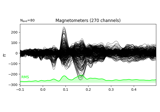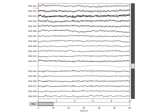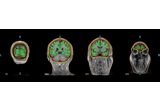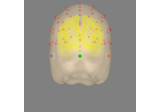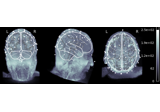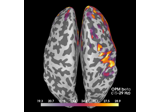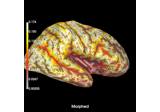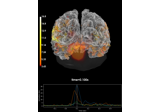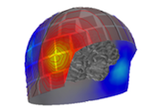mne.make_forward_solution¶
- mne.make_forward_solution(info, trans, src, bem, meg=True, eeg=True, mindist=0.0, ignore_ref=False, n_jobs=1, verbose=None)[source]¶
Calculate a forward solution for a subject.
- Parameters
- info
mne.Info|str The
mne.Infoobject with information about the sensors and methods of measurement. Ifstr, then it should be a filepath to a file with measurement information (e.g.mne.io.Raw).- trans
str|dict| instance ofTransform|None If str, the path to the head<->MRI transform
*-trans.fiffile produced during coregistration. Can also be'fsaverage'to use the built-in fsaverage transformation. If trans is None, an identity matrix is assumed.Changed in version 0.19: Support for ‘fsaverage’ argument.
- src
str| instance ofSourceSpaces If string, should be a source space filename. Can also be an instance of loaded or generated SourceSpaces.
- bem
dict|str Filename of the BEM (e.g., “sample-5120-5120-5120-bem-sol.fif”) to use, or a loaded sphere model (dict).
- megbool
If True (Default), include MEG computations.
- eegbool
If True (Default), include EEG computations.
- mindist
float Minimum distance of sources from inner skull surface (in mm).
- ignore_refbool
If True, do not include reference channels in compensation. This option should be True for KIT files, since forward computation with reference channels is not currently supported.
- n_jobs
int The number of jobs to run in parallel (default
1). If-1, it is set to the number of CPU cores. Requires thejoblibpackage.- verbosebool |
str|int|None Control verbosity of the logging output. If
None, use the default verbosity level. See the logging documentation andmne.verbose()for details. Should only be passed as a keyword argument.
- info
- Returns
- fwdinstance of
Forward The forward solution.
- fwdinstance of
See also
Notes
The
--gradoption from MNE-C (to compute gradients) is not implemented here.To create a fixed-orientation forward solution, use this function followed by
mne.convert_forward_solution().
